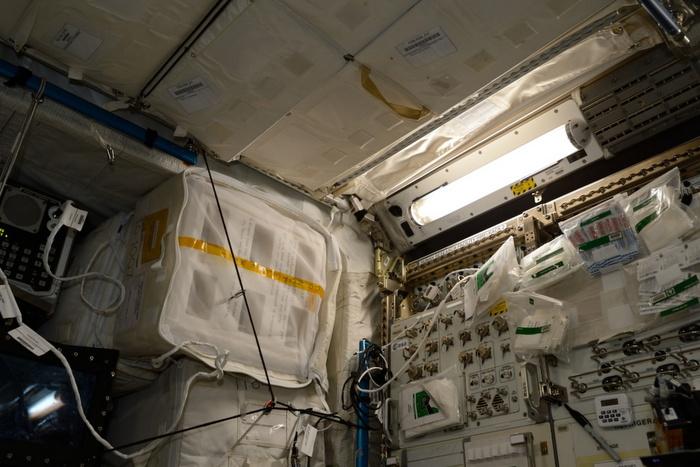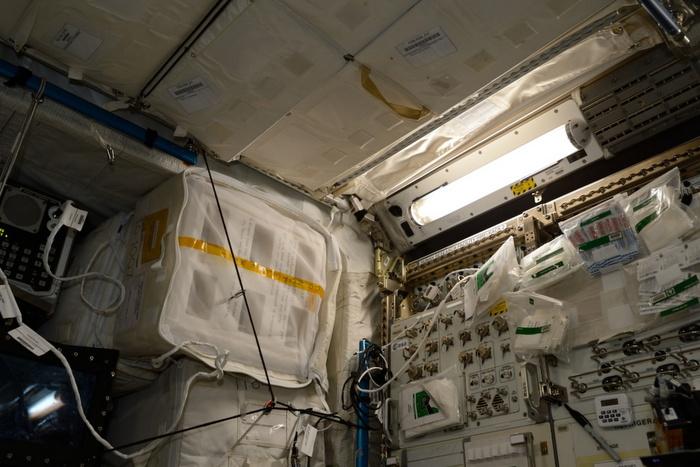
Credit: NASA
Hurtling around Earth, at 17,500 mph some 248 miles in space, is a small swarm of City College of New York-bred fruit flies and their parasitic wasps. The insects, from biologist Shubha Govind's lab, are part of an experiment on the International Space Station (ISS) whose outcome could be beneficial to astronauts on exploration missions.
Three years ago, Govind was the recipient of a $500,000 NASA grant for the project entitled "Does spaceflight alter the virulence of a natural parasite of Drosophila?" Drosophila is a genus of small flies attracted to ripening fruit. They are often called fruit flies.
The flies were shuttled to the ISS aboard the SpaceX Dragon spacecraft this month for the culmination of the project.
"Astronauts' immune systems can be vulnerable to infections and dysfunction on long-duration space exploration missions, and it is important that we understand how they react to spaceflight conditions," explained Govind, professor in CCNY's Division of Science. "The fruit fly has served as a stand-in for human research for over a century. Its genome has more than 70% of the disease genes identified in humans. The mechanisms' underlying innate immunity–the first line defense against parasites and pathogens, is conserved between flies and humans."
Govind said the results of the experiment would provide a paradigm for how the human immune system might be affected by an infectious agent in microgravity conditions. "They will also inform us on the parasites' ability to succeed on their hosts in microgravity," she added.
The flies are scheduled back on Earth on May 2 after 30 days in space.
Post-flight research will be done mainly at CCNY in collaboration with NASA scientists from the Ames Research Center.
Govind's collaborators include Sharmila Bhattacharya of NASA's Ames Research Center, who is the grant's co-investigator.
###
Media Contact
Jay Mwamba
[email protected]
212-650-7580
http://www2.ccny.cuny.edu
Original Source
https://www.ccny.cuny.edu/news/city-college-bred-fruit-flies-parasites-space-odyssey





